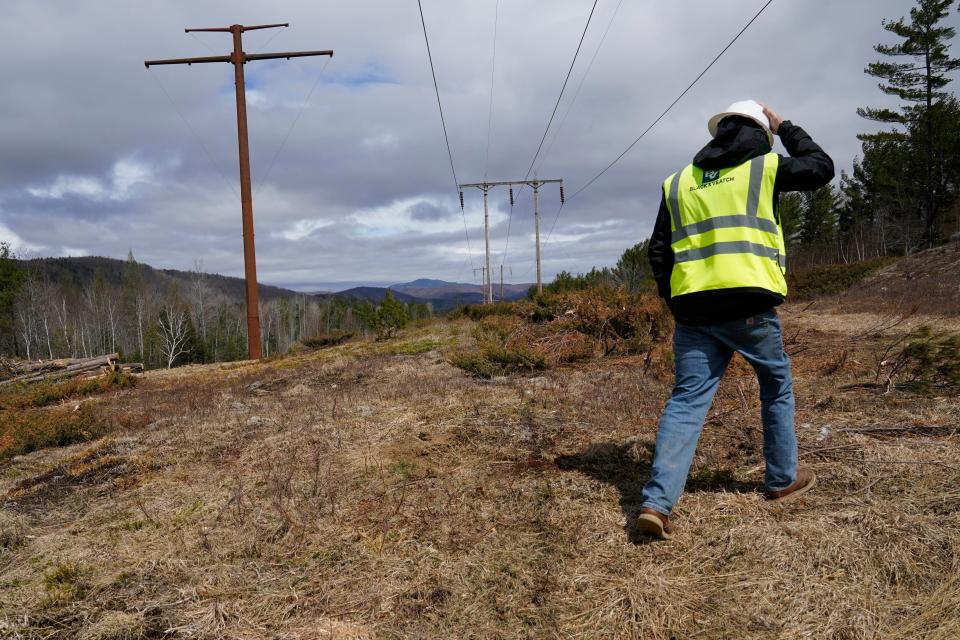Maine Supreme Court upholds legality of lease that's key to $1B power line
PORTLAND, Maine (AP) — Maine’s highest court on Tuesday upheld the lease for small section of state land for a $1 billion electric transmission corridor, delivering a victory to the project's developers.
The Supreme Judicial Court ruled unanimously that the Maine Bureau of Parks and Lands acted within its authority in leasing a 1-mile (1.6-kilometer) stretch of the 145-mile (233-kilometer) power transmission line. All told, the state lease covered about 32 acres (13 hectares) of land in western Maine.

The New England Clean Energy Connect remains on hold pending the outcome of another legal case focusing on the constitutionality of a referendum in which Maine voters rebuked the project.
Central Maine Power’s parent company and Hydro Quebec teamed up on the project that would supply up to 1,200 megawatts of Canadian hydropower to the New England power grid. That’s enough electricity for 1 million homes.
Supporters say such bold projects are needed to address climate change. Critics contend the environmental benefits are overstated and that it would destroy woodlands.
“Today’s ruling by the law court is yet another step in the right direction for Maine’s renewable energy future. The serious need for the NECEC project to reduce our reliance on fossil fuels, combat climate change, and lower energy prices remains unchanged,” said Scott Mahoney, Avangrid's general counsel.
But opponents decried the court’s conclusion that the lease didn’t represent a substantial alteration or reduction of land warranting a vote of state lawmakers, as required under a 1993 amendment to the Maine Constitution.
State Sen. Rick Bennett, R-Oxford, accused the court of undermining the will of the people who amended the Constitution to protect public lands. “The job of the Supreme Court is to serve the people of Maine and to protect our Constitution," he said in a statement. "With this ruling, they have instead sucker-punched the people of Maine and subverted our Constitution."
More:Whole Foods' decision to pull Maine lobster draws fire
Most of transmission line would be built along existing utility corridors, but a new 53-mile (85-kilometer) section was needed to reach the Canadian border.
Workers had been clearing trees and setting poles for months when the governor asked for work to be suspended after the referendum last year. The referendum on the project was the costliest in Maine history, topping $90 million and underscoring deep divisions.
The project would be funded by Massachusetts ratepayers, but supporters say the introduction of so much electricity to the grid would stabilize or reduce electricity rates for all consumers.
This article originally appeared on Portsmouth Herald: Maine Supreme Court upholds legality of lease that's key to $1B power line

